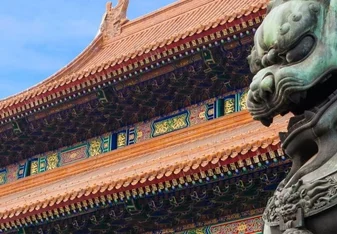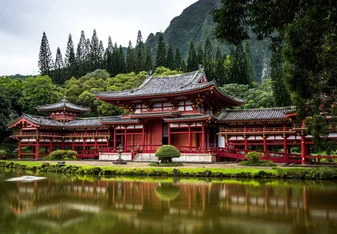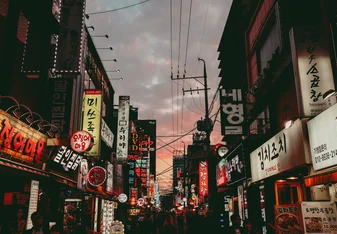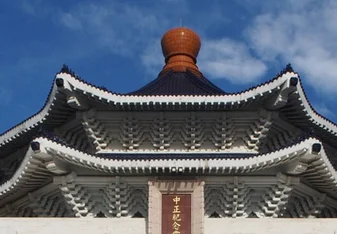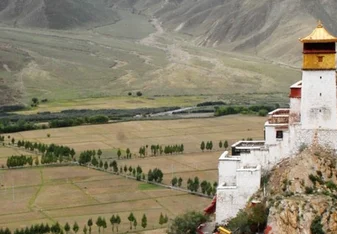Study Abroad Programs in Mongolia
Study Abroad Programs in Mongolia
About
From the wild, untamed region of the high plateau fringed with mountains and desert to the bustling cosmopolitan capital of Ulaanbaatar, Mongolia is a city of surprising contrasts. If you choose to study abroad here, you'll experience a blend of ancient and modern culture that most visitors describe as unforgettable.
Whether you choose to study in the city or the rural steppe, choosing to study abroad in Mongolia is a rare and exciting opportunity. Most students flock to more traditional study abroad locations, so if off-beat Mongolia is of interest to you, hold tight to your sense of adventure and get ready for the study abroad experience of a lifetime.
Program Types
Rugged, searingly beautiful Mongolia and its dynamic capital city of Ulaanbaatar offer several programs for international students wanting to study abroad. You could take up the opportunity of a lifetime to live and work in rugged mountainous landscapes alongside nomadic tribesmen while learning their language, or enjoy valuable work experience with an internship in a Mongolian organization.
If you’re looking for total immersion in Mongolia’s fast-paced urban culture, enroll at university in Ulaanbaatar for a year’s course in Mechanical Engineering. You’ll come out with an internationally accepted B.Sc. and new language skills with which to kick-start your professional career.
Program Providers
Two program providers currently have study abroad courses in Mongolia, and both offer you an amazing chance to explore the country’s wild and remote grasslands. Round River just started a new degree-level program offering a study abroad year in the mountainous Darhead Valley, with hands-on courses in animal science, ecology or earth sciences. SIT Mongolia offers spring or fall study programs in a number of disciplines from economics to conservation or economics, while living among nomadic herding communities. These courses wind up with a four-week internship for a local Mongolian company so you’ll get real work experience and your language skills will come on in leaps and bounds.
The degree course at GMIT is for a full academic year, while the Round River and SIT programs typically last a semester and can be taken in either spring or fall.
Direct Enrollment
You can enroll directly at college or university so you have total independence when you go overseas to Mongolia. The German-Mongolian Institute for Resources and Technology offers study abroad students an academic year spent in Ulaanbaatar as part of its B.Sc. in Mechanical Engineering. If you’re happy and confident about going it alone, this is the choice for you, but you’ll be responsible for your own enrollment on the course and you won’t have a support network behind you. There’ll be a small fee to pay as an international student but that’s considerably less then you’d pay following a program.
Planning Your Trip
Popular Cities
If you want to have an urban experience in Mongolia, the capital city of Ulaanbaatar sits in northeast Mongolia, a vast and mainly rural expanse of mountains, steppe grasslands and pockets of desert in the south. In sharp contrast to the rest of the country, Ulaanbaatar is a city on fast-forward, where you’ll find modern skyscrapers, a buzzing social life in cosmopolitan cafés and bars, and late-night clubbing.
Alternatively you could head for the remote steppes and mountains, staying in yurts with malchin herdsmen and sharing their nomadic existence. Study abroad programs that allow you to live and study in this region are less common, but can offer an eye-opening opportunity to see the unique culture some Mongolians still live.
Housing
Your living accommodation will vary according to your chosen study abroad program. Students on degree courses may be supplied with dormitory-style accommodation on campus or private apartments in Ulaanbaatar. For a real back-to-nature learning experience, you could find yourself sharing a yurt with a rural family, giving you a fantastic opportunity to glimpse a nomadic lifestyle.
Scholarships
You may be eligible to apply for a scholarship to study in Mongolia. Typically, scholarships are tied to a specific program, so be sure to review different programs offered in Mongolia to find one that's right for you.
Visas
If you’re planning to study in Mongolia, you’ll need to get a visa through the Office for Immigration, Naturalisation and Foreign Citizens (OINFC) in Ulaanbaatar. Visa charges vary according to the length of your stay; the most common one for students spending a semester in Mongolia is a multi-entry student visa that costs $160 and lasts 90 days (roughly the length of the semester).
Costs
The cost of studying in Mongolia with Go Overseas depends on the program you follow. A ballpark figure for a year’s university tuition is US$2,000. The cost of living in Mongolia is not expensive, so accommodation, food and entertainment average out at around US$400 per month.
Cell Phone Plans
Most cell phones work in Mongolia, although reception can be patchy. Ulaanbaatar and the provincial capitals all now have 4G access. Buy a local SIM card to save money on roaming charges, receive calls for free and enjoy cheap text messaging. If you have a smart phone, you’ll also be able to access the Internet in most areas of the country.
Additional Tips
Few businesses in the provincial capitals and rural areas accept credit cards, so you’ll need to stock up on the local Mongolian currency, tögrögs, before traveling outside Ulaanbaatar.
Health & Safety
Health
You’ll not encounter any major health issues traveling in Mongolia, although you might find yourself with a sore throat due to the arid air, an upset stomach from your change in diet, or altitude sickness at higher altitudes. If you foresee any of these being a problem, you can stock up on simple over-the-counter remedies before you head abroad, or practice your Mongolian speaking skills buying a medical kit at a pharmacy in Ulaanbaatar before traveling into the remote countryside.
Although vaccinations are not compulsory, you might consider getting covered for polio, typhoid, diphtheria, rabies, and hepatitis A. You’ll need to be vaccinated about eight weeks before you go overseas.
Carry bottled water and don’t drink the tap water, especially outside Ulaanbaatar.
Safety
It’s a great idea to take extra passport-size photographs plus photocopies of the main pages of your passport and all travel documents with you in case you lose them. Emergency replacement passports can be issued at your embassy, all of which will be in Ulaanbaatar.
If you lose your cash or credit cards, contact your bank as soon as possible. Likewise report the loss of your cell phone immediately. While pickpockets are not necessarily common in Mongolia, it's best to take standard precautions to protect your personal property.






